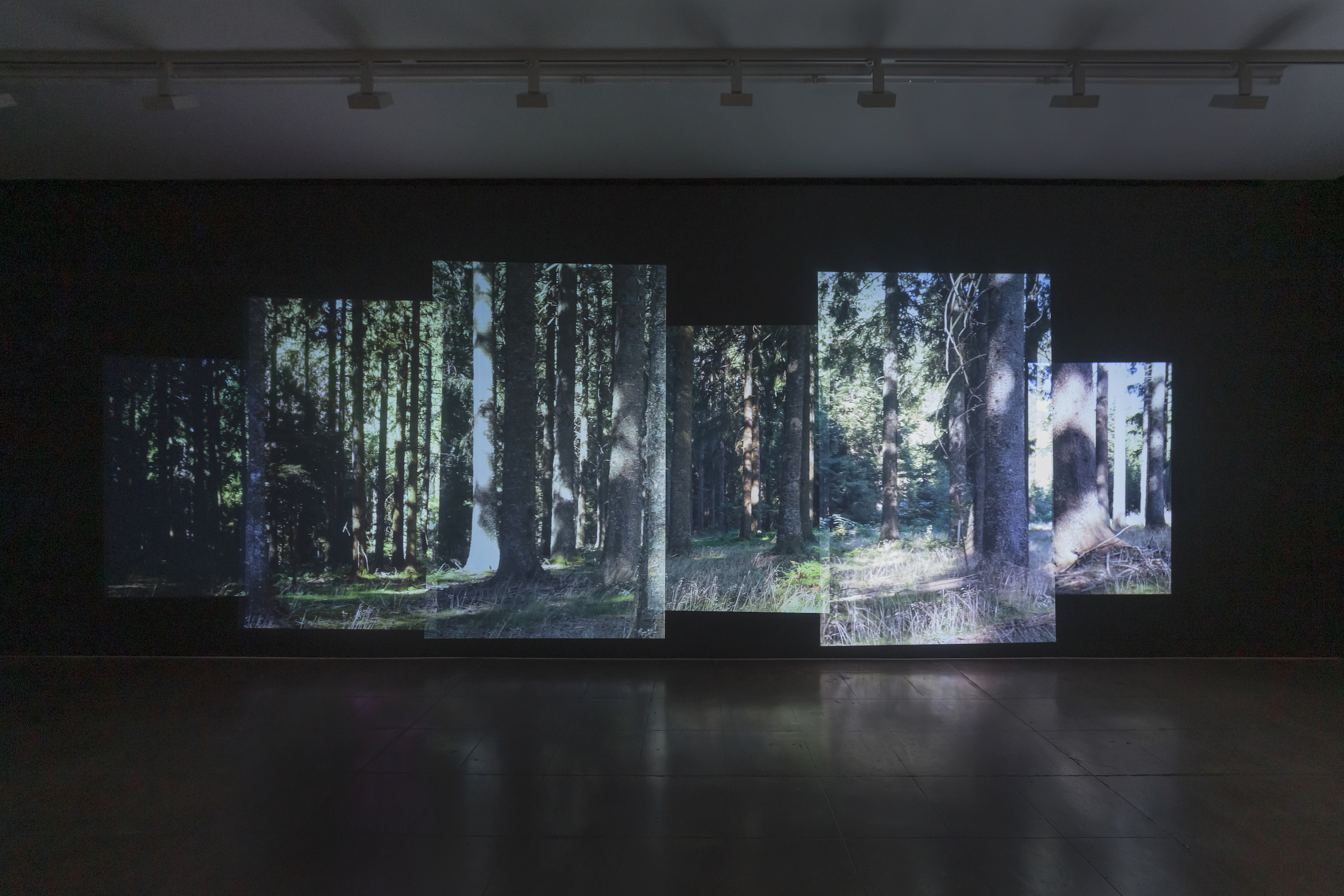What if the smell of the sun through the trees is where it begins? What if the feel of damp moss remains defiant? What if pinesap sticks to your sleeve?What if you feel bewildered?
What if a story is hard to tell? What if it rebels against its narrator? What if it belongs to many different people at the same time? What if words escape? What if images insist? What if images and realities get confused? What if place shapeshifts? What if there is no vantage point? What if the past is made out of silences? What if time was never a chronological continuity? What if things are never as simple as they are told? What if realities slip? What if truths come with burdens? What if proximity and precarity are inevitable? What if things repeat but are not the same? What if biographical stories are fragile? What if power is crucial to these stories?
What if there was a man who saw nature as the last stronghold of nobility during the early twentieth century, just when a push for democracy was levelling out class differences and hybridizing society? What if this man, Madison Grant, was on the board of trustees at the American Museum of Natural History, the director of the American Eugenics Society, and the vice president of the Immigration Restriction League? What if he claimed that social progress had destabilized society, had made life unfulfilling, had subjected human beings to indignities? What if he romanticized nature as a space where domination of one species over another was deemed natural? What if Madison Grant was a close friend of Teddy Roosevelt? What if Madison Grant, as part of a group of wealthy young men had come up with the idea to create the national parks in the United States through a system of environmental stewardship and controlled public access? What if this supposed stewardship began with the removal of Indigenous communities—the traditional guardians of the land—and land theft from black families? What if the idea for National parks always has been to create recreational nature for white communities? What if Madison Grant believed that the necessity to control nature needed to be extended to control humans through eugenics? What if in 1916 he published these believes in his pseudo-scientific book “The Passing of the Great Race”? What if this book – which was widely read – prompted a young German/Austrian corporal named Adolf Hitler to write Grant a fan letter calling “The Passing of the Great Race” his bible? What if Grant’s book, still readily available, was quoted in a 2011 manifesto written by a Norwegian mass murderer to justifying his heinous killings in a children’s summer camp? What if the conservation of nature in a Western sense has always been about controlling ideas?
A child of so-called “War Children” (individuals born in the 1930s in Germany), Geyer grew up in the mountainous region of the Black Forest. Coming of age during the late 1970s and early 1980s, the artist experienced the employment of “memory culture” as a strategy for reckoning with the country’s violent history, raising a collective consciousness of the past to create a vantage point for the present. Deeply shaped by this cultural condition, Geyer insists on the dangers of ignoring difficult histories, as the ideologically driven omissions of the past can lead to an inevitably volatile present.
In never yet Geyer takes the German forest of her childhood as a framework to explore the ways in which fascist ideologies draw on notions of ‘nature’ and ‘natural’ for their dissemination. From the turn of the 20th century to present-day, the forest has been exploited by white supremacists to justify constructs of Social Darwinism, the nuclear family, and binary gender norms. At the same time, Geyer shares her childhood experience of the forest’s indifference to human norms and desires, inviting viewers to be aware not only of the ideological thickets of fascism, but also the forest’s continuous, potent resilience.
never yet is a video installation comprised of six vertical, overlapping projections on a continuous loop. Destabilizing the image of the landscape, Geyer allows the forest to reorganize itself through visual fragmentation towards a viewer. The accompanying voiceover considers the forest from historical, ideological, and somatic vantage points. Its rich layers weave the artist’s personal experiences as a queer teenager foraging in the woods together with her mother’s wartime stories of being a child in hiding. Also drawing on Geyer’s expansive research into white nationalism’s investment in nature both throughout history and in the present moment of the United States, the installation urges viewers to contemplate how right-wing ideology seeps into their everyday life.
Reflecting on nature as a vessel for individual and collective memory, Geyer exposes the seemingly silent residue of fascist ideologies still present in U.S. culture today. The works on view reveal how personal and political histories are inherently connected, despite – or perhaps precisely because of – their dichotomies.
Credits:
Voice Over: Nancy Brooks Brody
Script Advisor: Alhena Katsof
Sound Mix and Master: Kayla Elrod



